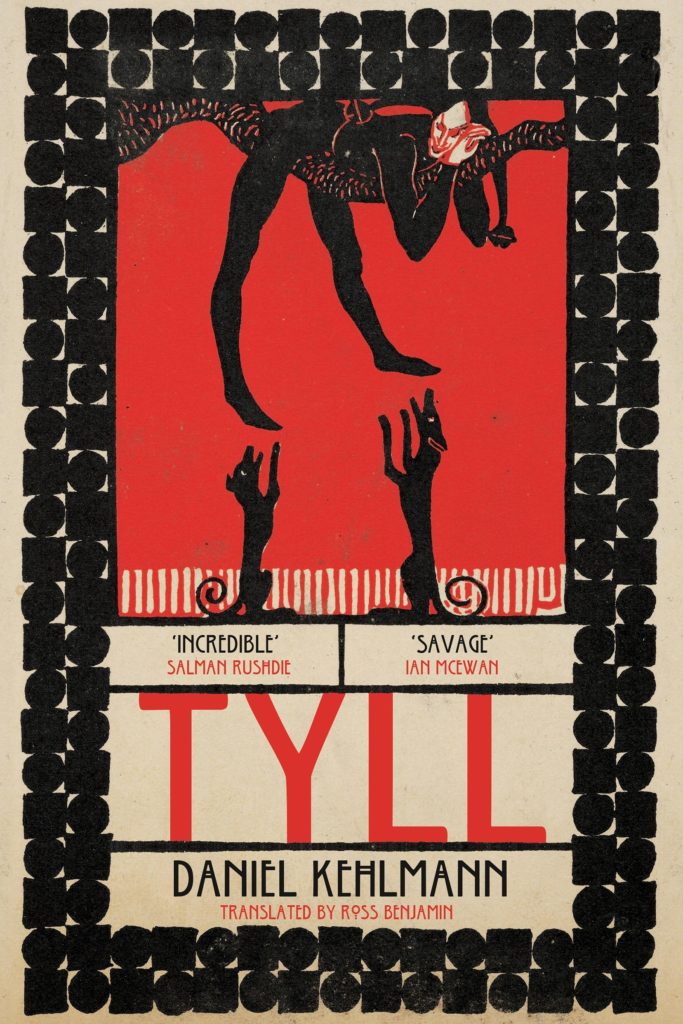[Review] Tyll: A Novel, by Daniel Kehlmann

Occurences of Till Eulenspiegel in print:
1515 – German chapbook, by anon
1867 – The Legend of Thyl Ulenspiegel and Lamme Goedzak, by Charles De Coster
2017 – Tyll, by Daniel Kehlmann
Tyll as a personage of history is worthy of writing an essay on alone, and I highly recommend browsing the Wikipedia article on it. An actual person from the 13th centruy, in De Coster’s hands, becomes a creature that hovers around the Thirty Years’ War and the resultant Reformation, a kind of chaperone to various events of import. It is this Tyll that Daniel Kehlmann writes, a wanderer in Austria, sardonic witness to the grunting offhand cruelty of the world.
Finally reading this book when I did felt like many of my interests were suddenly being connected to each other in time that was obvious, but completely surprised me. Mennochio the miller from The Cheese and The Worms makes an appearance, it’s set during the Thirty Years’ War, Gluckel of Hameln (in her memoirs) lives nearly in the same time and place…but what about the book!! It just puts together so many historical archetypes in my head. I was also surprised to then later find that Tyll Ulenspiegel lived 300 years earlier- and that the Tyll of Tyll is a contemporary retelling of the 19th century book of the same name, from France. I’d like to read the 13th century original Tyll Ulenspiegel now!
The parts about performing for money and life being difficult resonated with me. I feel you Tyll. Life is hard, people are dicks. Getting good at something is hard too, and nobody cares more about it than you will. People are dumb and suspicious. The local asshole will throw you under the mill wheel just to watch you die. Fun times! The writing somehow prevented me from thinking, somehow, that the world was horrible and bleak. Matter-of-factly? Tyll keeps it pretty real. “You idiot.” he says all the time. Ha! It’s easier to bear cruelty, perhaps, if someone is there to remark on its idiocy.
But there’s more! The day I started reading it, I picked up Simplicissimus by John Grimmelshausen earlier that day, and later Athanasius Kircher or someone else is referring to it in the book! I guess my historical interests were altogether more consistent than I thought. I suspect that the time period in the book occurs at the same time as Simplicissumus.
Atmospheric, and vividly expresses the motivations and emotions of peoples without lapsing into intellectualism or moral disdain, but still somehow sympathetic and yet unforgiving. It’s like a Pieter Bruegel painting!